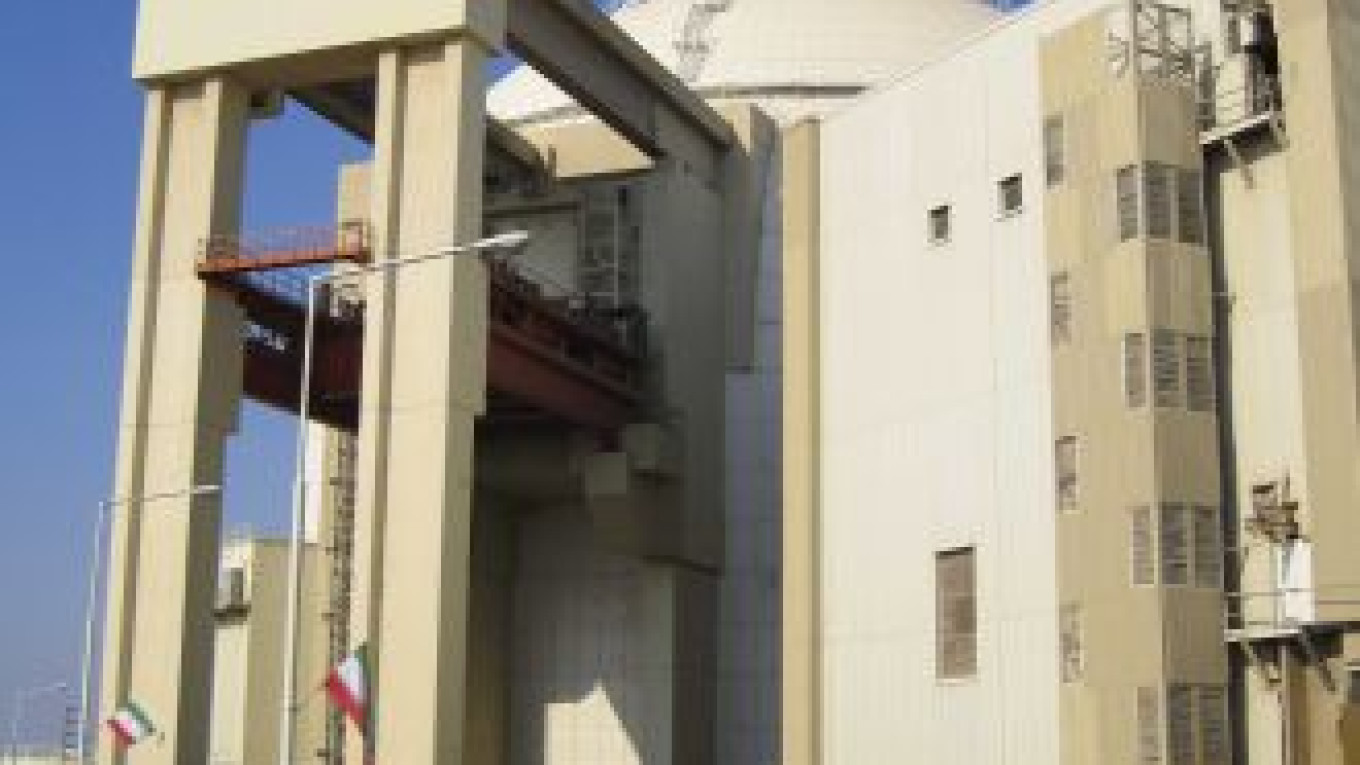Russia signaled impatience with Iran and growing acceptance of the West’s threat of sanctions on Tuesday, pointing to Tehran’s plans for new nuclear enrichment projects as a reason for pessimism about a diplomatic solution.
Russia would not be isolated if other powers reached a consensus on Iran sanctions, said a senior Russian diplomatic source, in Moscow’s most critical comments yet in the ongoing dispute over Tehran’s nuclear program.
“If there is a consensus on Iran sanctions, we will not stand aside,” said the diplomatic source, who requested anonymity due to the sensitivity of the situation.
“We will be thinking about sanctions but this is not an issue of the next few hours or weeks,” the source said, adding that Moscow did not want to complicate the situation with threats against Tehran.
Tehran caused an international outcry Sunday when it announced plans to build 10 more uranium enrichment sites in retaliation for a rebuke by the UN nuclear agency for covering up an enrichment project for at least two years.
Western powers, Russia and China backed a UN-drafted nuclear fuel deal in October that was designed to allay international concern about Iran’s atomic activities, but Tehran declined it.
“We will not contribute to the complicated situation with threats of sanctions but we will have in view such prospects … we are not going to remain isolated,” the source said.
Iran’s announcement that it planned to build new enrichment centers did “not add optimism to talks with Iran,” the source said, adding that Russia wanted Iran to cooperate openly and consistently with the International Atomic Energy Agency.
“We would rather have Iran cooperating more openly and consistently with the IAEA and showing clear steps to lift concerns — which are gaining greater foundation — than introducing sanctions against Iran,” the source said.
Analysts said the comments showed that Moscow is tiring of Iran’s failure to allay Western fears about its nuclear program and also irritated by growing criticism at Russia’s failure to deliver S-300 air defense missiles.
“In terms of general dynamics of course Russia is moving closer to sanctions,” said Fyodor Lukyanov, editor of Russia in Global Affairs.
He said Moscow was irritated with Tehran for not accepting its offer to enrich uranium.
“Russia is for sure angry at Iran for a few reasons, not only the general attitude of Iran. The Iranians are also very irritated at Russia’s stance, for example threatening an international court case against Russia over the failure to deliver S-300s,” he said.
Russia’s economic interests in Iran include building the Bushehr nuclear power station. Once a source of disagreement between Russia and the West, the United States now says the plant removes any need for Iran to have its own uranium enrichment program.
Russia may set up a venture with Iran to help fund joint investment projects in the Islamic Republic, Energy Minister Sergei Shmatko said, Bloomberg reported.
The two countries have untapped potential to “significantly” increase energy cooperation, Shmatko said in Tehran, according to a statement e-mailed by the Energy Ministry on Tuesday.
Shmatko visited the Bushehr nuclear power plant and met with the head of Iran’s Atomic Energy Organization, Ali Akbar Salehi, the statement said.
A Message from The Moscow Times:
Dear readers,
We are facing unprecedented challenges. Russia's Prosecutor General's Office has designated The Moscow Times as an "undesirable" organization, criminalizing our work and putting our staff at risk of prosecution. This follows our earlier unjust labeling as a "foreign agent."
These actions are direct attempts to silence independent journalism in Russia. The authorities claim our work "discredits the decisions of the Russian leadership." We see things differently: we strive to provide accurate, unbiased reporting on Russia.
We, the journalists of The Moscow Times, refuse to be silenced. But to continue our work, we need your help.
Your support, no matter how small, makes a world of difference. If you can, please support us monthly starting from just $2. It's quick to set up, and every contribution makes a significant impact.
By supporting The Moscow Times, you're defending open, independent journalism in the face of repression. Thank you for standing with us.
Remind me later.


